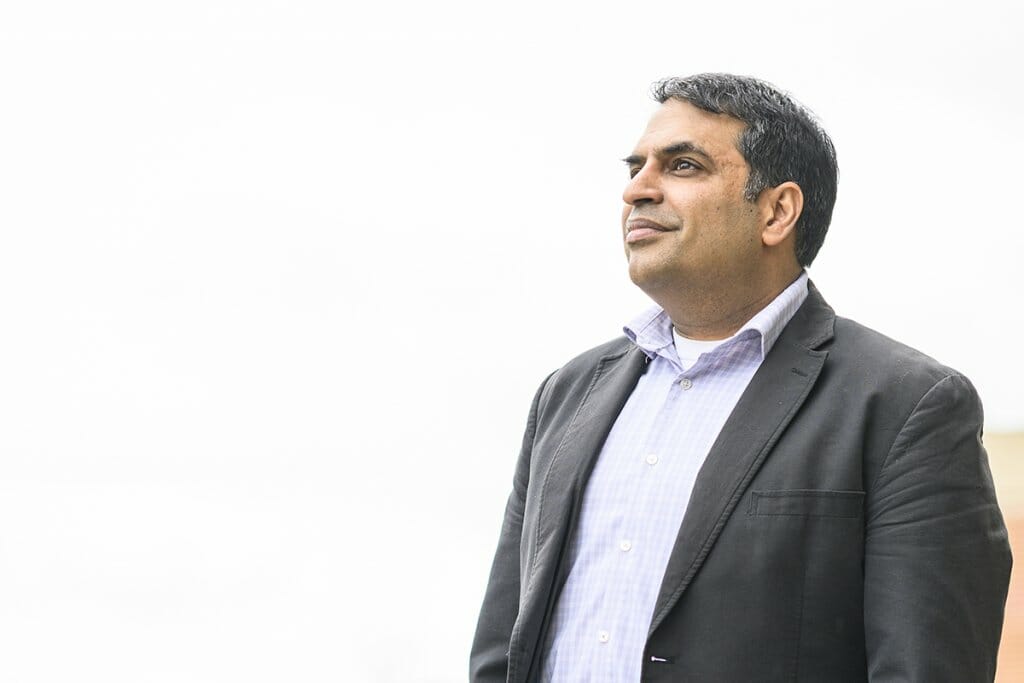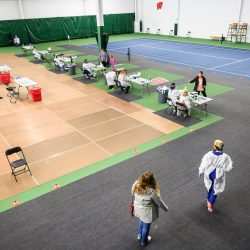An Epidemic of Misinformation
With more than 400 interviews during the COVID pandemic, epidemiologist Ajay Sethi became a thoughtful voice against falsehood and conspiracy.

Sethi: “We should remember that people at the CDC, people in our local health departments, are human beings just like us.”
For more than a decade, Ajay Sethi has been on the UW–Madison faculty in the Department of Population Health Sciences, doing the typical work of a professor with a mostly low-profile professional life. He conducted research in Uganda and Wisconsin and taught courses in epidemiology. Following the increasing occurrence of measles outbreaks in the United States, he took an interest in misinformation and conspiracy theories. He developed a course called Conspiracies in Public Health, aiming to help practitioners have conversations with clients and the community about hot-button health topics. During the pandemic, Sethi was in demand as an expert — he gave more than 400 interviews in 2020 and 2021. His low-profile days are over.
What’s it like to be featured so often in the news?
It definitely has changed how I spend my time. It certainly has made me feel like I’m part of an enterprise at the university, trying to help the public navigate the pandemic. It gives me a sense of purpose, and that’s always an important thing for anybody to have — when you wake up in the morning, to feel like what you’re doing may make a difference. But I also understand that every interview or every engagement with the community is just a tiny little drop in the bucket.
A lot of scientists became media figures. What mistakes have they made?
I’m sometimes a little dismayed when people who are part of the pandemic response are finding fault in what the Centers for Disease Control is doing. While I understand that there should be healthy debate in thinking about risk communication and how we help society navigate this, I think public arguments and finger-pointing by credentialed people only erode trust further. We should just remember that people at the CDC, people in our local health departments, are human beings just like us.
Why do you focus on misinformation?
I’ve always incorporated some element of behavioral science in most of my research — just thinking about what types of behaviors may promote the spread of infectious diseases and what kind of behaviors can prevent their becoming a burden to ourselves and to society. I don’t find that a lack of knowledge is preventing us from managing COVID-19. Really, it’s the division that we have in society that prevents us collectively from moving on. When we have that, it just generates a lot of resistance toward things that are quite normal.
What have you taken away from your public experience?
It’s been a privilege to be asked to contribute to news stories and to represent the university. I’m not out in the community as much as some people are, but when I do get those opportunities, I try my best.
Sethi is on the faculty in the University of Wisconsin School of Medicine and Public Health (SMPH). In May 2022, SMPH and UW Health, which have partnered for more than 100 years, launched the Wisconsin Medicine campaign to raise funds in support of research, education, patient care, and health equity. Learn more at wiscmedicine.org.
Published in the Summer 2022 issue



Comments
No comments posted yet.